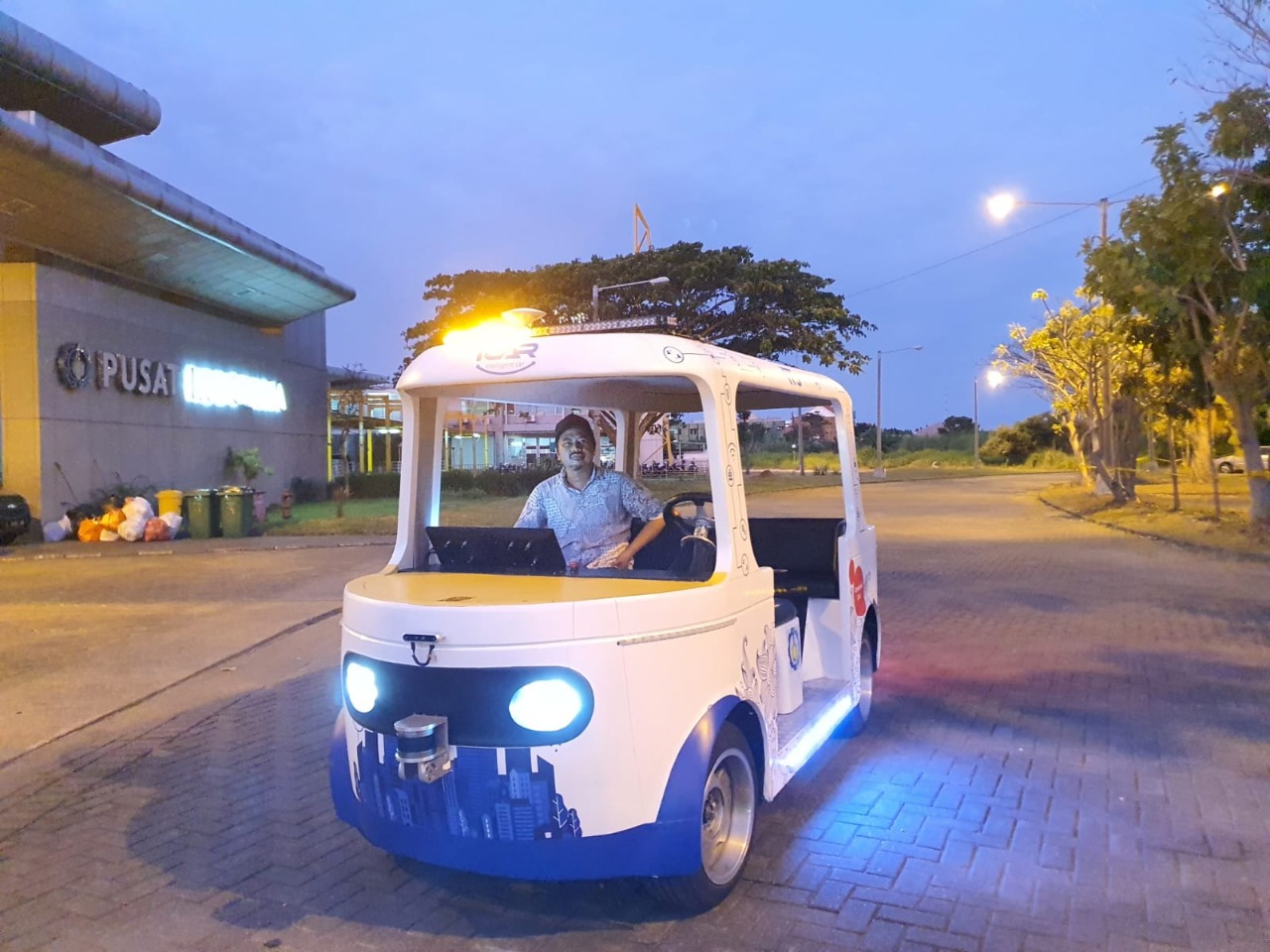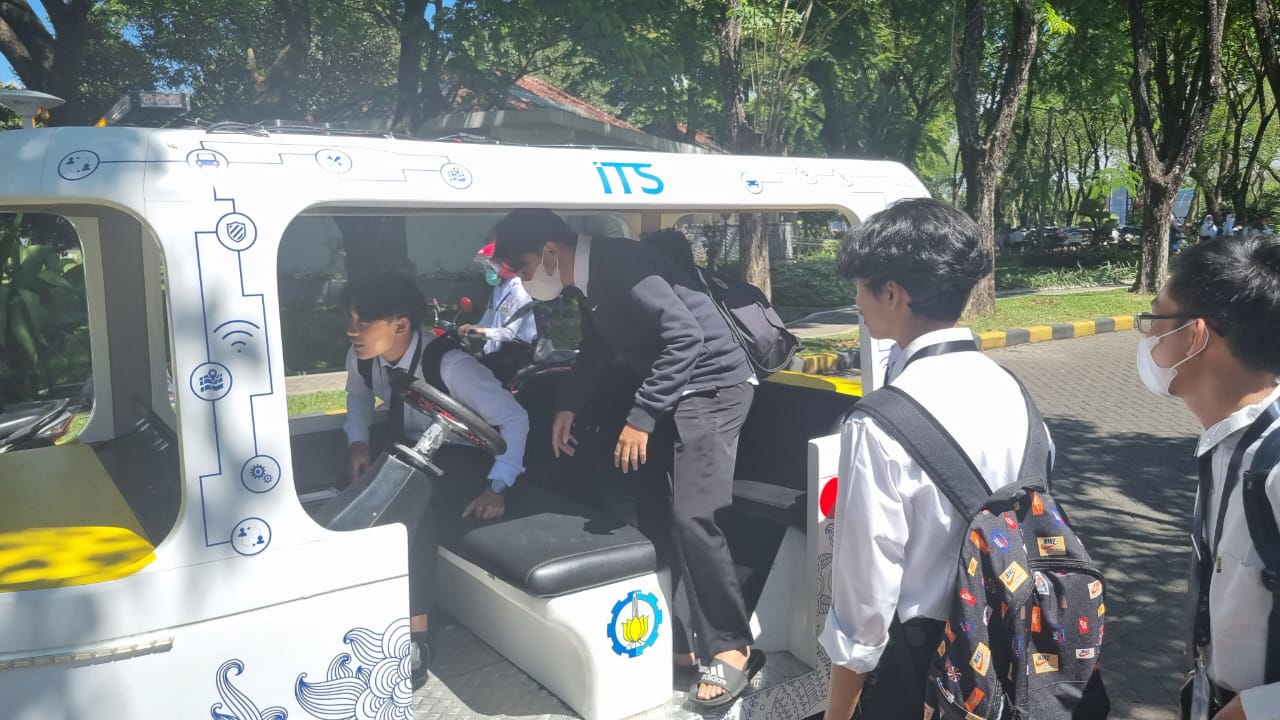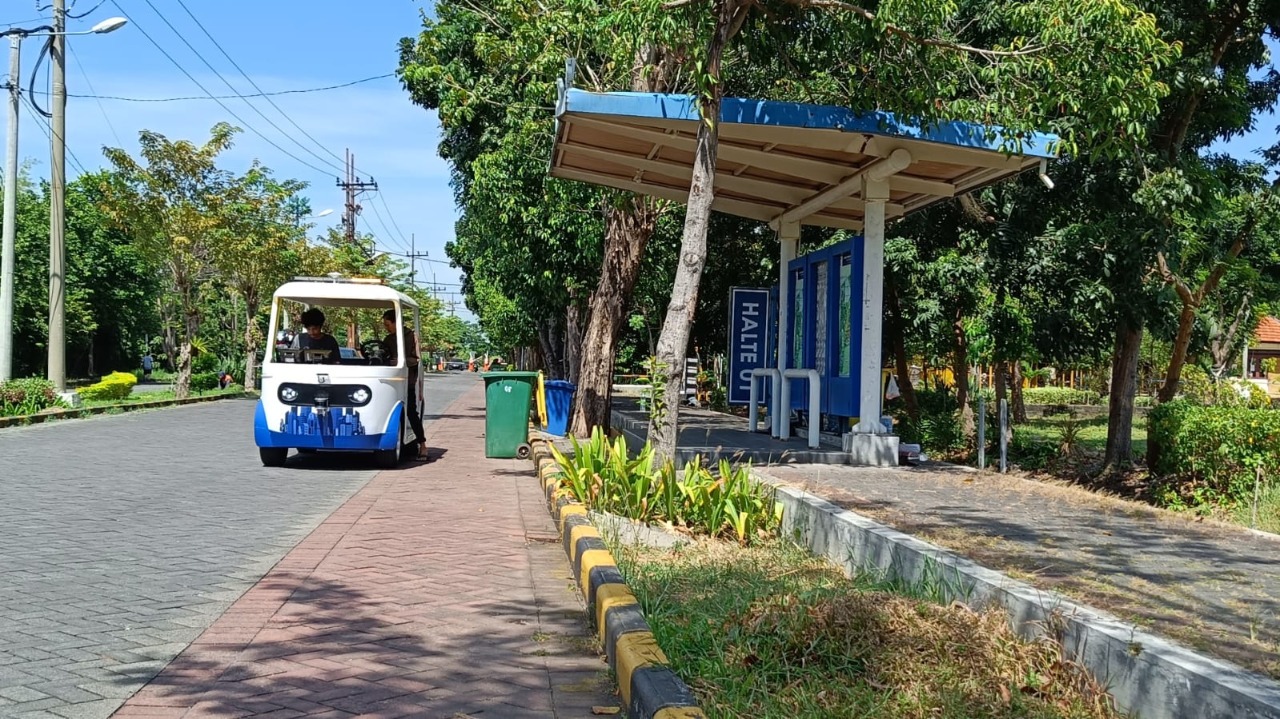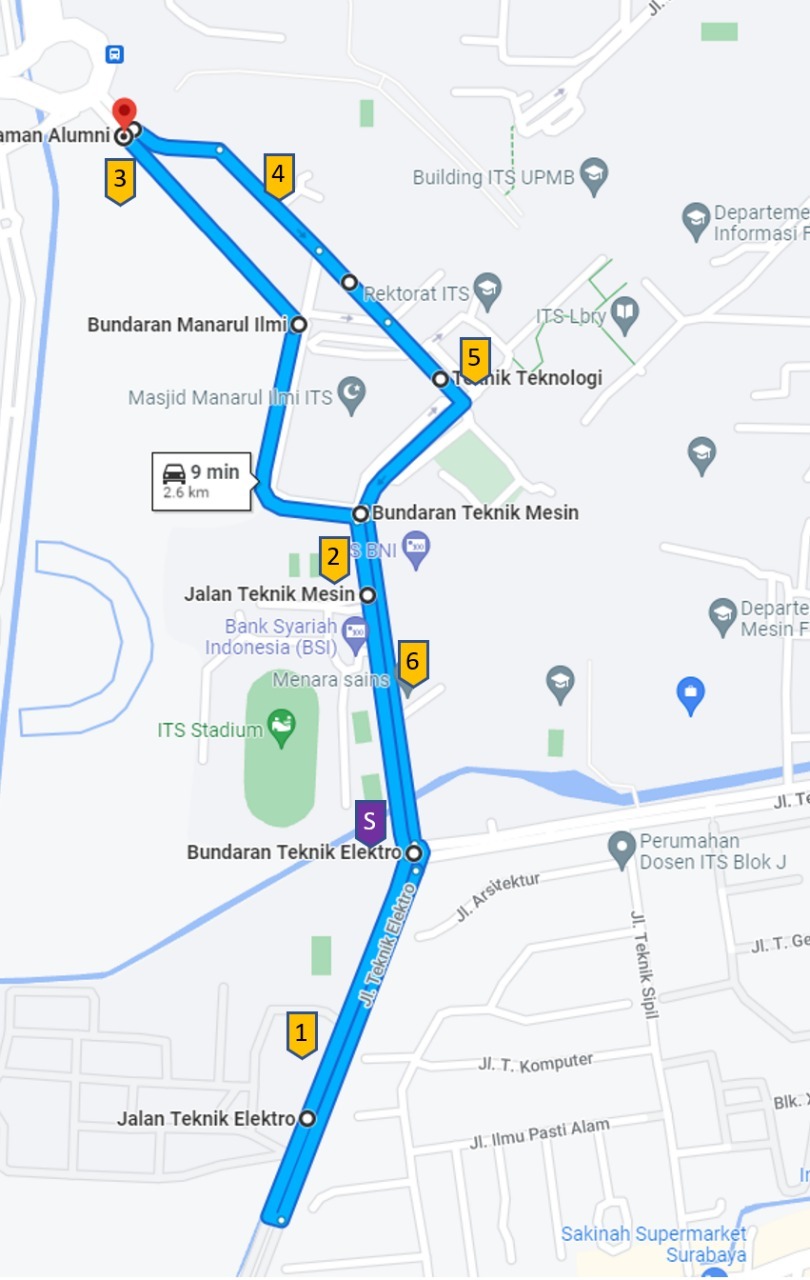Autonomous iCar Cars Officially Serve Transportation on the ITS Campus

ITS iCar research coordinator Dr. Rudy Dikairono ST MT
ITS Campus, ITS News –Institut Teknologi Sepuluh Nopember (ITS) now has an electric-powered public transportation mode in the campus environment. The smart car without steering (autonomous), dubbed the Intelligent Car (iCar), has officially operated at ITS, since last Monday (8/8). iCar will launch every weekday on six lanes in the ITS campus environment and can use for public purposes.
iCar research coordinator Dr. Rudy Dikairono ST MT revealed the six pathways. It is ITS Dormitory (Stop 1), Manarul Ilmi Mosque (Stop 2), ITS gate exit (Stop 3), Department of Environmental Engineering (Stop 4), Rectorate Building (Stop 5), and ITS Central Canteen (Stop 6). “iCar will operate in two shifts, namely at 10.00 – 11.00 and 14.00 – 15.00 WIB,” explained Rudy.
For the operational system, continued Rudy, every 10.00 iCar will depart from Stop 1 to Stop 2. At Stop 2, the iCar will stop for 30 seconds before continuing its journey to Stop 3. And so on until the last stop. “For an hour, iCar will continue to move from bus stop to bus stop,” explained the ITS Electrical Engineering Department lecturer.

iCar test drive by ITS new students in the ITS campus environment on the first day of operation
Even though it is already operating, Rudy said that iCar is still in the trial phase. Therefore, ITS has prepared one operator assigned to monitor in an emergency. Not only operators, if there is a problem, passengers can also immediately press the available emergency button so that the iCar will automatically stop.
In addition, iCar has also provided a website to access passengers on the http://research.its.ac.id/icar page. This website will later use to monitor the location of the iCar in real-time. Rudy added that the iCar has only been used for a capacity of five passengers and only has one unit.
Even so, Rudy targets that there will be additional car units and operating hours in the future. “We will also use the user interface application for calling,” explained one of the supervisors of the ITS Robotics Team.
iCar is known to have been launched in 2020 to coincide with the commemoration of the 75th Indonesian Independence Day (HUT). At that time, also present were the former Minister of Research and Technology and the Head of the National Research and Innovation Agency (Menristek/Head of BRIN) Prof. Bambang Permadi Soemantri Brodjonegoro SE MUP Ph.D. and the former Mayor of Surabaya. He now serves as Minister of Social Affairs Dr (HC) Ir Tri Rismaharini.

The starting point for iCar departure is at Stop 1 in front of the ITS Student Dormitory
iCar runs with Artificial Intelligence (AI) and the Internet of Things (IoT). This enables smart cars to help drivers recognize potential hazards, prevent collisions, reduce the risk of accidents, and optimize the power and propulsion of electric motors.
iCar is one of the smart cars made by researchers at the Center for Excellence in Science and Technology (PUI) at ITS, which consists of various disciplines. Among them is PUI Creative Design which is in charge of developing car bodies, PUI Automotive Control Systems, which develops car mechanics and structures. Moreover, PUI Artificial Intelligence for Healthcare and Society develops intelligent algorithms and navigation systems.

Map of the route traversed by iCar in the ITS campus environment
Rudy added that the iCar designs consider this car for specific environments, namely campuses. iCar equips with advanced sensors such as a camera, proximity, high-precision Global Positioning System (GPS), and Light RADAR (LiDAR). “We put these sensors into the navigation algorithm so that they can move autonomously according to environmental conditions around them,” he explained.
In the future, the development team plans to mass produce the iCar so it can also be used in public areas. “We hope that iCar can operate optimally on the ITS campus and be beneficial for all parties,” he said hopefully. (ITS Public Relation)
Reporter: Erchi Ad’ha Loyensya
Related News
-
ITS Wins 2024 Project Implementation Award for Commitment to Gender Implementation
ITS Campus, ITS News —Not only technology-oriented, Institut Teknologi Sepuluh Nopember (ITS) also show its commitment to support gender
August 13, 2022 20:08 -
ITS Professor Researched the Role of Human Integration in Sustainable Architecture
ITS Campus, ITS News –The developing era has an impact on many aspects of life, including in the field
August 13, 2022 20:08 -
ITS Sends Off Group for Joint Homecoming to 64 Destination Areas
ITS Campus, ITS News — Approaching Eid al-Fitr, the Sepuluh Nopember Institute of Technology (ITS) is once again facilitating academics who want
August 13, 2022 20:08 -
ITS Expert: IHSG Decline Has Significant Impact on Indonesian Economy
ITS Campus, ITS News — The decline in the Composite Stock Price Index (IHSG) by five percent on March 18,
August 13, 2022 20:08
